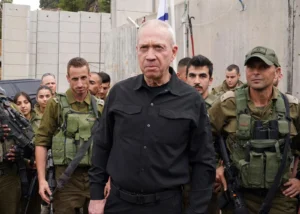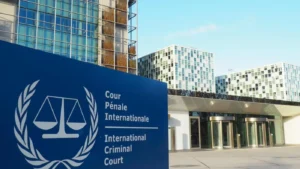Imam’s Controversial Stance
NewYorkView.net AUGUST 25, 2012 BY TABISH TALIB |

Sheikh Moussa Drammeh runs Adopt-a-Friend, which pairs a native New Yorker to an immigrant to show them the ropes. / Tabish Talib
Sheikh Moussa Drammeh is constantly looking for ways to help his community.
He runs Adopt-a-Friend, a non-profit group that pairs a native New Yorker with immigrants to help bridge cultural gaps.
He created HalalFinder, an eBay-type service that connects Muslim businesses around the world. Drammeh (whose first name is not an honorific title) created HalalFinder, an eBay-type platform for Muslims to shop.
He also leads daily prayers, runs a school, and is in the process of opening a credit union.
“I’m a natural born activist,” said Drammeh, imam of the Al-Iman mosque. The founder of the Islamic Leadership School in the Parkchester neighborhood of the Bronx is still the owner of a cleaning service he began when he was 8 years old.
Yet, Drammeh remains a controversial figure for stances he’s taken on public issues. He recently he came out in support of the NYPD’s stop and frisk and mosque surveillance policies. Those decisions have earned him sharp criticism from other Muslim community leaders.
Drammeh, 50, received a slew of complaints in March, when he supported Commissioner Ray Kelly after the Mosque surveillance scandal. In that action, undercover Muslim officers in the NYPD went to different mosques and Muslim groups in the tri-state area to look for terrorist cells, according to the Associated Press.
Some officers even went to different Muslim organizations outside of New York City, outside of NYPD jurisdiction.
“We came to support our commissioner for the wonderful job he has been doing,” he said to WNYC in March. “He is not here to please every Muslim, nor is he here to please every New Yorker but his responsibility is to protect every life under his command.”
Imam Al-Hajj Talib ‘Abdur-Rashid of the Mosque of Islamic Brotherhood in Harlem was among Drammeh’s harsher critics. He did not return calls asking him to discuss the situation for this story. However, he wrote on March 8th on his blog that Drammeh should refrain from saying such things because it is detrimental to the Muslim community.
“I wonder how [Drammeh] would feel if he learned that the children of his Islamic Leadership School (a fine institution which he leads admirably), and he as its head master, not to mention Masjid Al-Iman, had been under covert surveillance [six] years or longer?” he wrote.
Drammeh said that only Muslims who were doing something wrong should fear the NYPD.
“The only way we can be truthful is if we are transparent,” Drammeh said. “If people are afraid of surveillance then something is not right.”
Regarding stop and frisk, Drammeh said even though there was a march against the policy a few months ago, no one is saying to stop the policy now because of the increase in gun crime in the summer.
Two recent gun-related crimes in the South Bronx resulted in child fatalities, causing the city to launch a $4.8 million initiative to reduce gun crimes, according to dnainfo.com.
Even his assistance to an orthodox Jewish community caused some uproar with some of Drammeh’s congregants and other imams.
The Jewish community could not afford any spaces, so Drammeh gave them space in the school building for free.
Rabbi Bob Kaplan, who heads a different Jewish congregation, was thrilled when he heard about the gesture of friendship. He commended Drammeh, who he has worked with on other projects, on his openness in letting the congregation use his facility.
“He is remarkable human being who talks about doing the right thing,” Kaplan said. “It takes a real bridge builder to do what he did.”
Drammeh said some of his congregants left over the issue but is adamant that the uproar was only because they were ignorant of what the scripture says and because they wrongly transfer international politics into a New York environment.
Kaplan, who founded CAUSE-NY, the community building division of the Jewish Community Relations Council, said Drammeh is a good leader for Muslims to have.
“He’s a leader that cares about not only his community, but other communities as well,” Kaplan said. “And that’s the sign of a real leader.”
***

A black rug with verses from the Quran written in golden yellow and depicting the two holy mosques in Mecca and Medina. / Tabish Talib
Drammeh stands over 6 feet tall, sports a goatee and usually wears a dark-colored thawb, an ankle-length garment common in Africa.
He was born in the Gambia and reared in Senegal but he does not remember his family. His mother died when he was three, and his father died when he was nine. He said that neighbors in his home village raised him, but he never felt he had less than other children.
He attended an Islamic school known as a madrasa where he memorized the Quran. He didn’t plan to become an imam but the role was thrust upon him much later in life.
Drammeh came to New York in 1986 at the age of 24 without knowing a word of English. He said that he intended to make a lot of money and then return to Senegal.
“But a human being has a plan, and Allah has a plan,” he said. “And of course you know which plan will materialize.”
“But a human being has a plan, and Allah has a plan,” he said.
During the next four years, Drammeh quickly went through the type of odd jobs many immigrants without much education tackle. They included: laborer, restaurant worker, messenger, doorman, street vendor and taxi driver.
“You name it, I did them all,” he said.
After hearing West Africans were being rejected from getting apartments for rent in 1994, Drammeh obtained a real estate license to help them.
And in 2000,when he wanted to help out Muslim businesses and families to obtain loans without usury and interest (practices that are not allowed in Islam) Drammeh went to Wall Street and worked in investment banking to learn how to operate his own bank.
After he became married and had three children, Drammeh wanted to raise them in an Islamic environment. Since there was no Islamic school, he built one himself in 2001.
His intention was not to build a mosque with the school, but the kids needed a place to pray causing. Drammeh became the imam.
Shireena Drammeh, his wife, runs the school now. She said the K–12 school,which has about 50 students, is a successful venture. 115 students attended the school before bus services were cut a few years ago.
“We have no regrets,” she said. “Even with the numerous challenges.”
Sheikh Moussa Drammeh has helped out other religious groups simultaneous to all these projects.
Besides housing the orthodox Jewish community, he has also housed an interfaith group, The Interfaith Center of New York, led by Rev. James Parks Morton in the Islamic center in 2004. That act caused the New York Times article to call Drammeh the Santa from Senegal and Muslim Santa.
The interfaith group still uses the space today.
Bronx Borough President Ruben Diaz Jr. identified Drammeh as one of Bronx’s most influential community leaders.
Diaz meets with Drammeh regularly through the African Advisory Council set up two years ago to improve relations with different African immigrant communities. Diaz commended the imam on his efforts in the neighborhood.
“Sheikh Drammeh has helped spark dialogue in our growing African community,” he said. “He is also a role model who through his hard work and dedication, has helped improve the quality of life of our Muslim brothers and sisters across the borough.”
***
The building the Al-Iman mosque and the Islamic Leadership Schoolare housed in is still under construction. The imam pictures classrooms and cafeterias yet to be built when looking out into empty warehouse space.
The school used to be in a separate building a few blocks away but had to move because there was not enough space.
There is still work to be done, but Drammeh is not worried about the lack of money. He knows he and his wife can build it.
Shireena Drammeh, said that despite his business ventures and political activism, her husband makes sure he is there as a father and husband, so that he sets a good example for the students in their school and their three children.
“I don’t have a complaint,” she said. “We do make time for each other.”
Speaking about his political activism, Drammeh said the reason he takes such a strong stance in support of the NYPD is because he has witnessed extremism in mosques in New York in past.
“The mosques used to be places where criminals go to discourse about hatred,” he said. “I want my children to grow up loving America.”
The NYPD has more Muslim officers than any time before, Drammeh said. He questioned the accusations of prejudice when there was so much diversity.
“Now has to be time where we stop blaming and start building our future together,” he said.
Drammeh is not worried about the future of Muslim-Americans. Compared to other immigrant communities Muslims are much better off. Muslim-Americans are more educated and wealthier than other groups, he said.
“Twenty years from now Islam will become one of the most positive aspects of American life,” Drammeh said.





